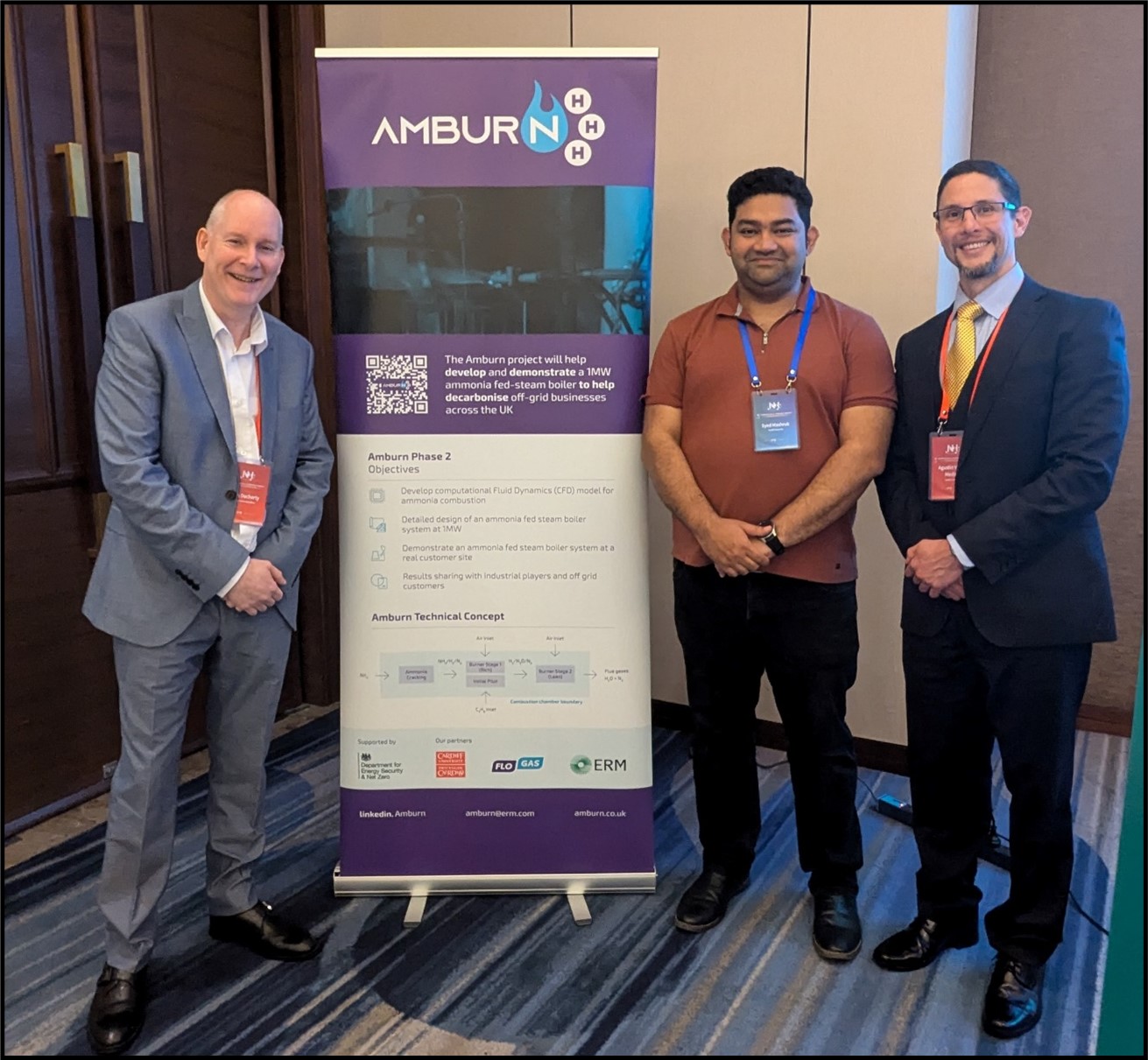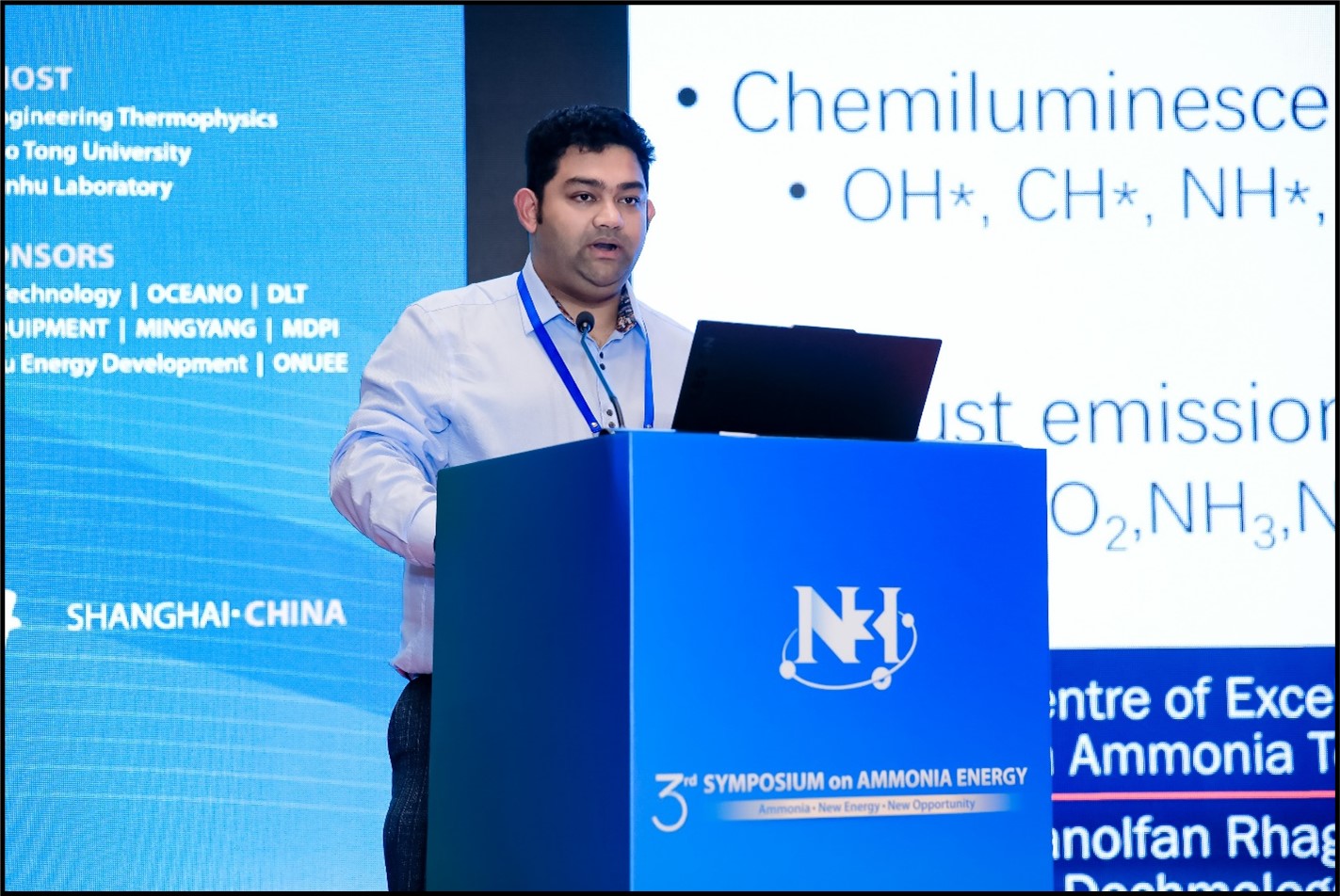Amburn participates to world leading Ammonia Symposium

Hosted by Shanghai Jiao Tong University and Foshan Xianhu Laboratory, this symposium gathered over 500 participants, including 160 international attendees, creating a forum for discussing the latest advancements in ammonia energy. The event welcomed contributions from a diverse range of scientists at all career stages—scholars, graduate students, industrial practitioners, and others interested in the potential of ammonia as an energy source.
Over the course of three days, the symposium featured an agenda that included plenary lectures, keynote talks, presentations, and poster sessions. These sessions covered a broad spectrum of topics within the ammonia value chain, enabling attendees to engage with cutting-edge research and innovative solutions. Key areas of focus included:
- Ammonia production
- Materials
- Catalysts
- Cracking systems
- Fuel cells
- Combustion fundamentals
- Combustion applications
- Reaction modelling
- CFD modelling
- Life-cycle assessment
- Environmental impact
- Techno-economic aspects
- Health, safety & security
While ammonia energy presents a promising avenue for decarbonisation, several challenges still need to be addressed before it can be widely adopted. These include concerns related to production, storage, transportation, utilisation, environmental impact, and safety. The symposium served as a crucial platform for discussing these challenges and highlighting the latest technological developments aimed at overcoming them.

The Amburn team displayed a new poster outlining their objectives and showcases the latest findings during several presentations. Syed Mashruk, Agustin Valera Medina, and Ross Docherty represented Amburn, with Syed Mashruk sharing critical insights during his presentation.
“Currently ~4.5 million tonnes of oil are consumed in the off-mains industrial market annually in the UK. These energy intensive processes contribute to point source emissions of 14.2 MtCO2/y. Businesses and industries in these locations often cannot rely solely on electricity to satisfy their process heating requirements. Decarbonisation of these sites therefore presents a significant and pressing challenge. Therefore, the Amburn project will develop and demonstrate a 1 MW ammonia-fed steam boiler to help decarbonise off-grid businesses across the UK. Funded by the Department for Energy Security & Net Zero as part of the UK Government’s £55m Industrial Fuel Switching Competition, Flogas Britain and Cardiff University will prove that ammonia is a viable, cost-effective renewable fuel for large energy users off the mains gas grid. Phase 2 of Amburn will build upon the main findings outlined in the feasibility study of Phase 1, further developing the design of Amburn, conducting two stages of testing to enable a scale up of two orders of magnitude throughout the project, and finally carrying out a demonstration at a real customer site”.
The symposium provided the Amburn team with the opportunity to engage with other experts in the field, exchange ideas, and explore potential collaborations to advance ammonia energy solutions for decarbonisation. The event highlighted the importance of collective efforts in addressing the pressing challenges of climate change and showcased the role of ammonia as a critical component in the transition to sustainable energy systems.

Overall, the 3rd International Symposium on Ammonia Energy proved to be a significant milestone in fostering dialogue and collaboration among researchers, industry professionals, and policymakers dedicated to harnessing the potential of ammonia in the global energy landscape.
Other news



